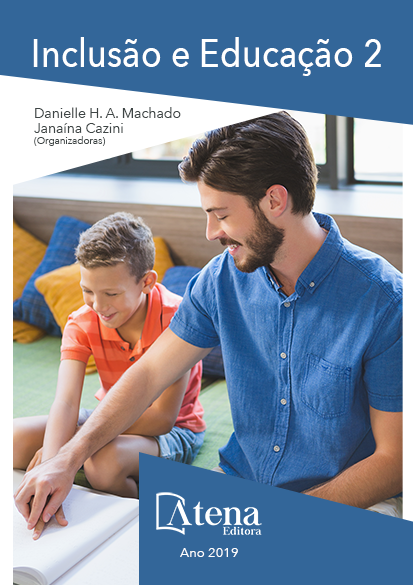
TECNOLOGIA ASSISTIVA E PESSOAS COM DEFICIÊNCIA: construindo uma educação superior inclusiva
Este estudo analisa a importância da
tecnologia assistiva para a inclusão de pessoas
com deficiência na UFMA sob a mediação do
Núcleo de Acessibilidade, órgão instituído pelo
Programa Incluir: acessibilidade na educação
superior do governo federal e que apresenta
a tecnologia assistiva entre os seus eixos
fundamentais de atuação. Parte-se do conceito
de tecnologia assistiva e a importância de sua
aplicação no contexto educacional, tendo em
vista que alguns estudantes com deficiência só
poderão permanecer e concluir a graduação se
obtiverem o suporte dessa tecnologia e o apoio
de profissionais especializados. Desenvolveuse
uma pesquisa exploratória e descritiva,
por meio da revisão de literatura, análise
documental e entrevistas semiestruturadas
com 10 estudantes com deficiência atendidos
sistematicamente pelo Núcleo, no qual se
destacam os visuais e auditivos. Os resultados
apontam que o Núcleo dispõe de tecnologia
assistiva e tem atendido as necessidades
dos estudantes com deficiência, contudo as
questões orçamentárias têm interferido para
que os equipamentos não sejam em condições
suficientes para atender a todas as demandas,
fato que se complexifica quando se identifica que
no próprio Núcleo não há um setor específico
para tratar dessa produção, o que compromete
a autonomia e independência das pessoas com
deficiência no desenvolvimento das atividades
acadêmicas e interfere na potencialização da
proposta inclusiva.
TECNOLOGIA ASSISTIVA E PESSOAS COM DEFICIÊNCIA: construindo uma educação superior inclusiva
-
DOI: 10.22533/at.ed.30819150117
-
Palavras-chave: tecnologia assistiva; deficiência; núcleo de acessibilidade; inclusão; educação superior.
-
Keywords: Assistive technology; Higher education; Accessibility core; Inclusion.
-
Abstract:
This study analyzes the
importance of assistive technology for the
inclusion of people with disabilities in UFMA
under the mediation of the Accessibility Center,
an entity created by the Include Program, an
initiative from the federal government to ensure
accessibility in higher education, which presents
the assistive technology among its fundamental
main areas. It is highlighted the relevance of
assistive technology and the importance of its
application in educational context, since that
certain students with disabilities can only stay
and graduate if they obtain this technology
support, as well as the support of specialized
professionals. An exploratory and descriptive
research was developed through literature review, also were done a documentary
analysis and semi-structured interviews with 10 students with disabilities systematically
attended by the Center. The ones with visual and auditory deficiencies were stood
out. The results indicate that the Accessibility Center has assistive technology and
has fitted the needs of students with disabilities, however the budgetary issues have
interfered so that the equipments are not enough to satisfy all demands, a fact that
becomes complex when it is identified that in Center itself there is no specific sector
to deal with this production. This compromises the autonomy and independence of
people with disabilities in their development of academic activities and it interferes in
potentialization of the inclusive proposal .
-
Número de páginas: 15
- Josenilde Oliveira Pereira


